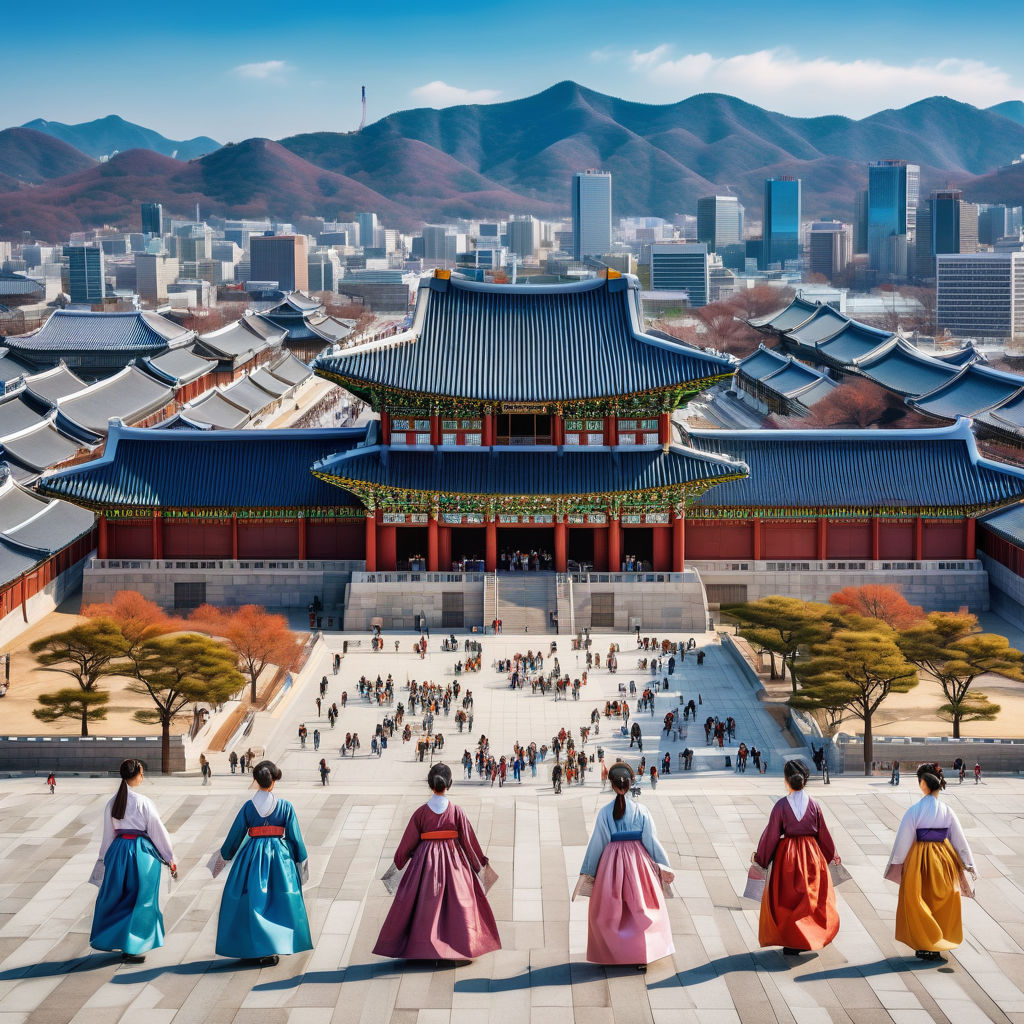Discover South Korea: Rich Heritage, Cultural Diversity, and Social Dynamics
Exploring South Korea's Cultural Tapestry, International Engagement, and Social Interactions

Introduction to South Korea
South Korea, officially known as the Republic of Korea (ROK), is located in East Asia on the southern half of the Korean Peninsula. It is bordered by North Korea to the north, the Sea of Japan (East Sea) to the east, the Yellow Sea to the west, and the Korea Strait to the south. Major cities include Seoul (the capital), Busan, Incheon, Daegu, and Daejeon. South Korea boasts a rich cultural heritage that blends ancient traditions with modern innovations. This is reflected in its UNESCO World Heritage sites, K-pop music, high-tech industries, traditional cuisine, and festivals like Chuseok and Seollal (Lunar New Year).
Cross-national and Cross-cultural Understanding
South Koreans generally perceive and engage with other cultures with curiosity and enthusiasm, though there is also a strong sense of national pride that influences these interactions. The country has experienced rapid globalization, leading to a greater appreciation for cultural diversity and the benefits of international collaboration. Significant cultural exchanges and educational programs highlight South Korea's commitment to global engagement. The Korean Wave (Hallyu), which includes the global popularity of Korean pop culture such as K-pop, K-dramas, and movies, has played a crucial role in promoting South Korean culture worldwide. The Korean Cultural Centers, established in many countries, actively promote Korean language and culture through various programs and events. Educational initiatives like the Global Korea Scholarship (GKS) program offer opportunities for international students to study in South Korea, fostering cultural exchange and mutual understanding. Additionally, South Korea's participation in international organizations such as the United Nations, OECD, and APEC underscores its dedication to fostering global cultural ties.
Interactions and Social Dynamics
Interactions between South Koreans and foreigners are generally characterized by politeness and respect. Korean social behaviors are influenced by cultural values such as "Jeong" (deep affection and bond), "Inhwa" (harmony), and respect for hierarchy and elders. These values are often reflected in the way South Koreans engage with outsiders. Social behaviors in South Korea emphasize formality and respect, especially in initial interactions. Bowing is a common form of greeting, and handshakes are often accompanied by a slight bow. The concept of "Nunchi" (the ability to gauge others' moods and respond appropriately) plays a significant role in social interactions, guiding respectful and considerate behavior. Communication styles in South Korea are generally indirect and nuanced. Koreans may use subtle hints and non-verbal cues to convey their messages, prioritizing harmony and avoiding confrontation. Understanding these subtleties can be challenging for foreigners, but learning the language and cultural norms can help bridge this gap. Language plays a crucial role in facilitating interactions. Korean is the official language, and while English is widely taught and spoken in urban areas, proficiency varies. Multilingualism is becoming increasingly important, especially in business and education, aiding in cross-cultural communication and interactions.
Views on Dating and Relationships
Dating and relationships between South Koreans and foreigners are becoming more common, particularly among younger generations. South Korean society tends to be open-minded about cross-cultural relationships, seeing them as opportunities for cultural exchange and personal growth. However, cultural expectations and traditions can still influence dating dynamics. In South Korean dating culture, there is often an emphasis on mutual respect, compatibility, and family approval. Relationships are typically pursued with a long-term perspective, and traditional gender roles can play a significant role, with expectations for men to be protective and women to be nurturing. Cultural expectations and traditions, such as the importance of family approval and the concept of "Han" (a collective feeling of sorrow and hope), can impact relationships. Understanding and respecting these cultural norms is essential for successful cross-cultural relationships in South Korea.
Marriage and Family
Marrying foreigners is widely accepted in South Korea, although it comes with certain social and familial considerations. Legal considerations for such marriages are straightforward, with clear regulations for international unions governed by South Korean civil law. Socially, South Korean families may initially have reservations about cross-cultural marriages due to concerns about cultural differences and social compatibility. However, acceptance typically increases as relationships develop and families get to know the foreign partner. Family plays a central role in South Korean culture, and marrying into a South Korean family often involves participating in family gatherings and traditions. Common practices in cross-cultural marriages include celebrating both South Korean and foreign traditions, creating a blended cultural environment. For example, a couple might celebrate South Korean holidays like Chuseok and Seollal alongside holidays from the foreign partner's culture.